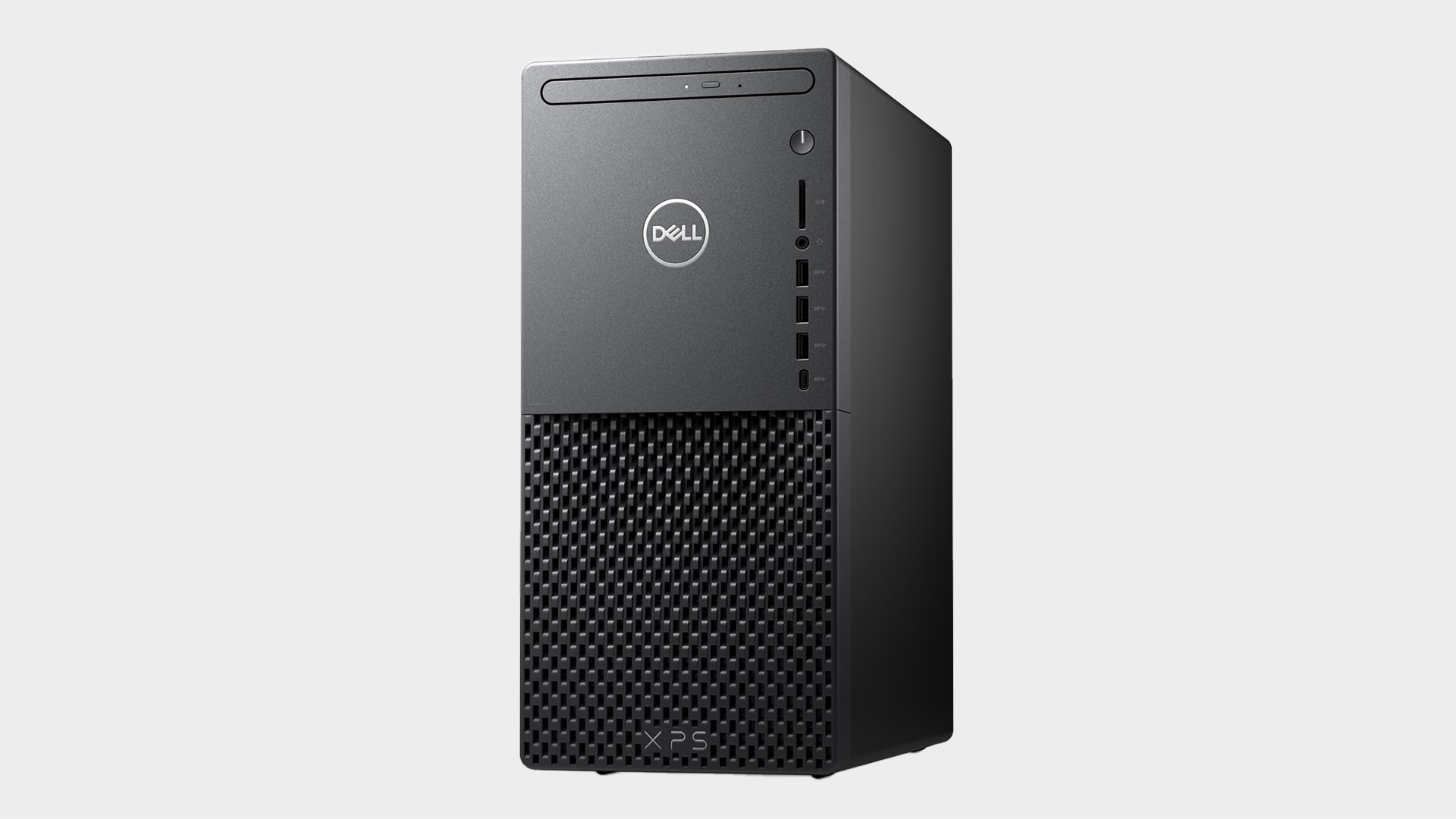Our Verdict
A simple and smart PC that's fit for both work and games. If only a little too expensive for what is now partially last-gen kit.
For
- Understated and compact design
- Handles work and play well
- Quiet and cool running
Against
- Only 16GB RAM
- Last-gen graphics
PC Gamer's got your back
When Dell announced its newest line of XPS desktops I was pretty taken back by the specs. Packing kit like an RTX 2070 Super as well as a 10th gen Intel Core i7 isn’t something I expect to see in a PC this understated. It’s almost like someone slapped the RGB right off this rig and left us with a cool slim build that feels at home on any desk. It’s subtle, and incredibly functional, but still difficult to justify at this price point, especially with the newer Nvidia RTX 3090 and RTX 3080 launches behind us.
CPU: 10th Gen Intel Core i7 10700K processor
GPU: Nvidia GeForce RTX 2070 Super
RAM: 16GB (2x8GB) DDR4 at 2,933MHz
Storage: 1TB M.2 PCIe NVME SSD + 2TB SATA 7200RPM HDD
Dimensions: 367 x 169 x 308mm
OS: Windows 10 Home 64-Bit
Warranty: One year in-home hardware service
The first thing I noticed about the XPS Desktop out of the box was how small it is. At just under 370mm tall and a smidge over 300mm deep, I can’t even see the case from behind my monitor. It’s even a little slimmer than my usual desktop measuring just 169mm wide. It’s also quite light, and the form factor has meant I’ve happily physically moved this PC around as needed. When working I’ve had it on my desk and barely noticed it. Then, to chill out, I’ve carted it out to the TV in the lounge and plugged it in there.
There’s a good array of ports on the front, including USB Type-C and an SD Card reader, and plenty more on the back. It’s a PC that almost makes you long for the LANs of old, before we weren’t allowed in a closed room with more than two other people.
In this small size also came one of my greatest fears: cooling. I immediately cracked open the case to take a look inside and the cooler on this CPU is huge. Because there’s no liquid cooling we’re talking a simple and sizeable block to cool the i7 10700K, as well as careful placement of fans and other components.
And this cooler seems to do the job. During most of my normal use with this PC, be it playing games like Microsoft Flight Simulator on highest settings or rendering video, temperatures tended to peak at 80°C with no perceivable struggle on the system to keep it this way. It’s a bit higher than I’d like to see, but very stable, quiet, and pretty impressive in such a small form factor. Though ambient room temperatures where I’m living are still generally under 20°C, so I can’t speak as to how this would do as warmer weather rolls around.
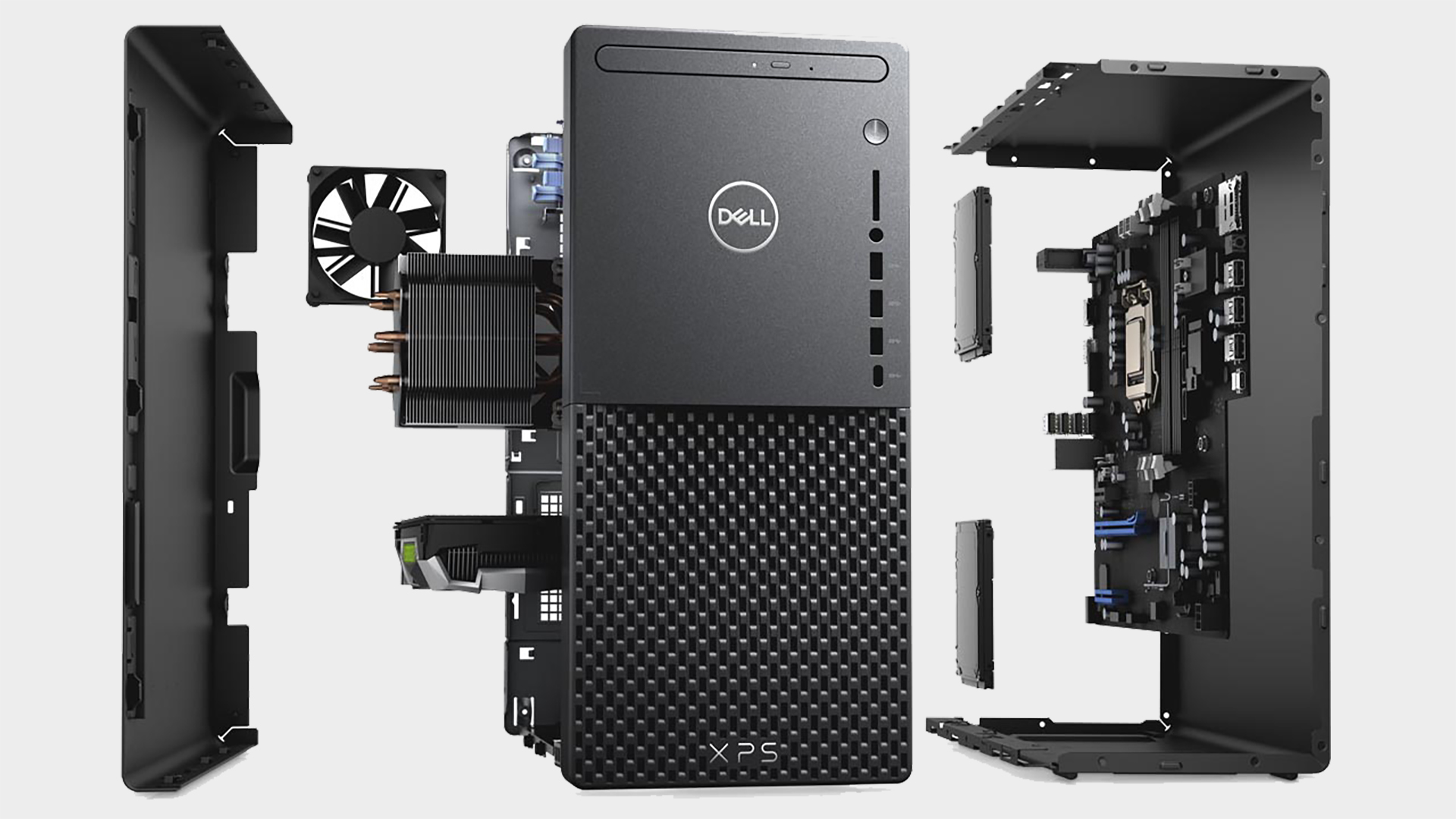
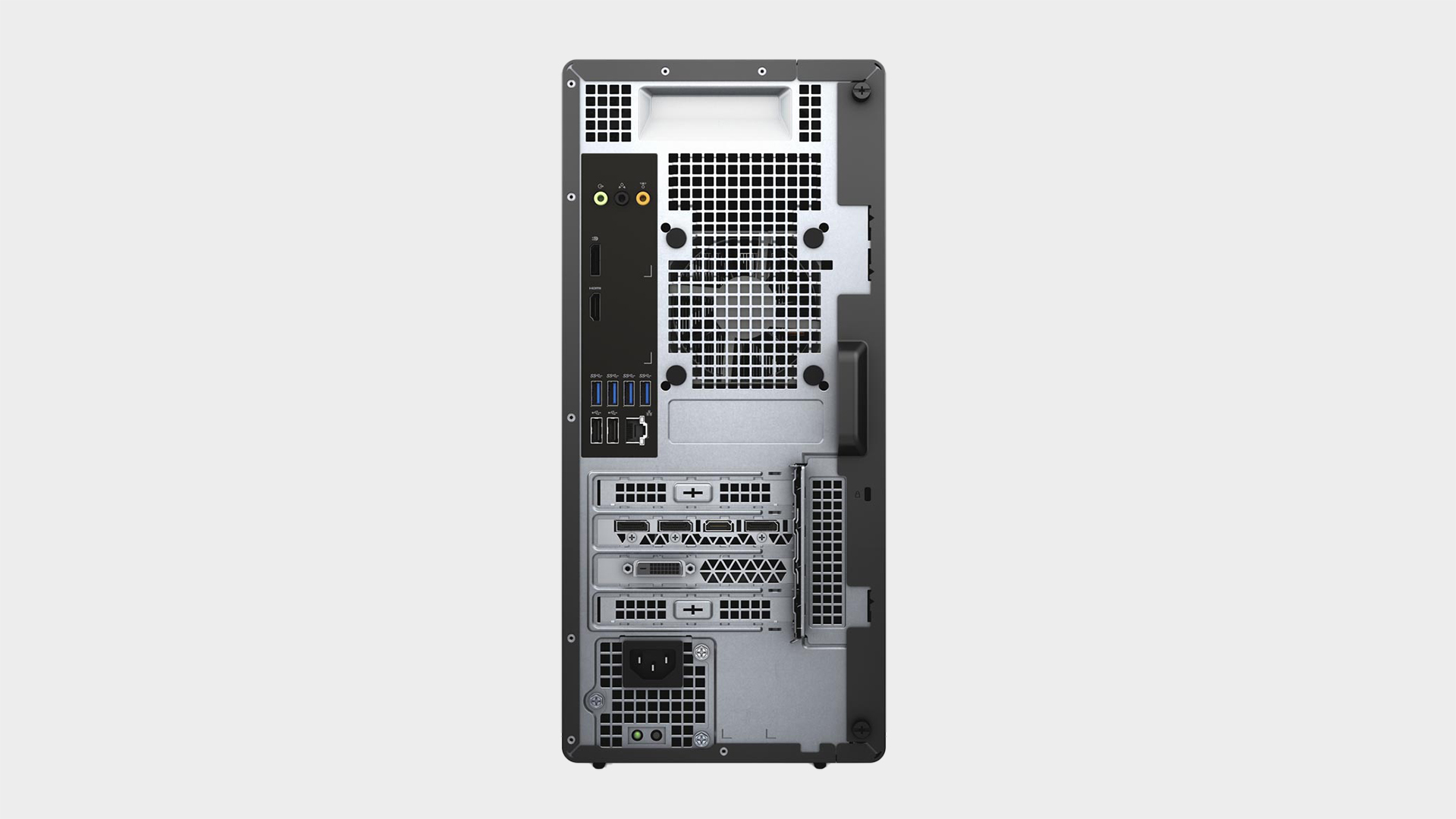
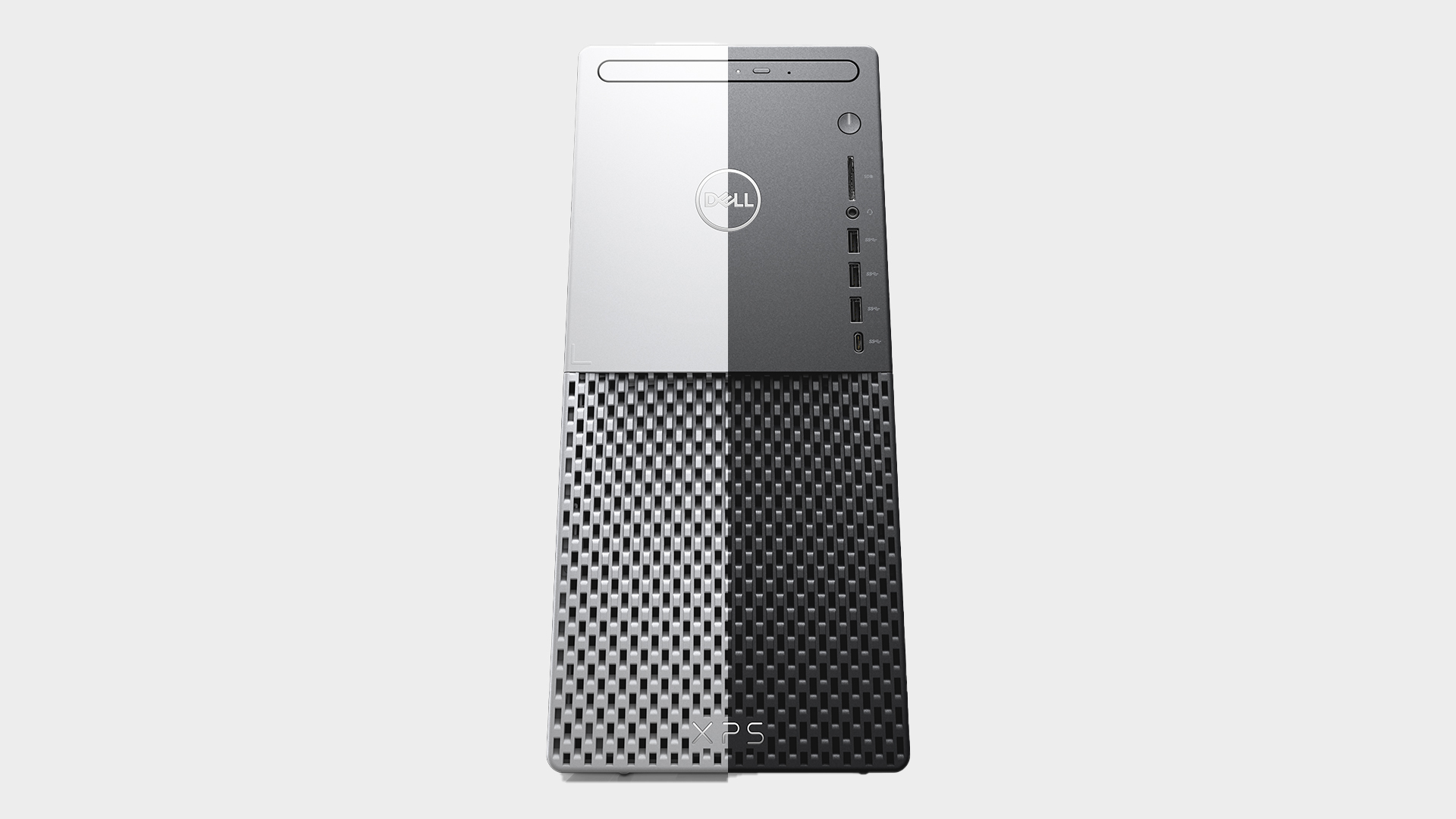
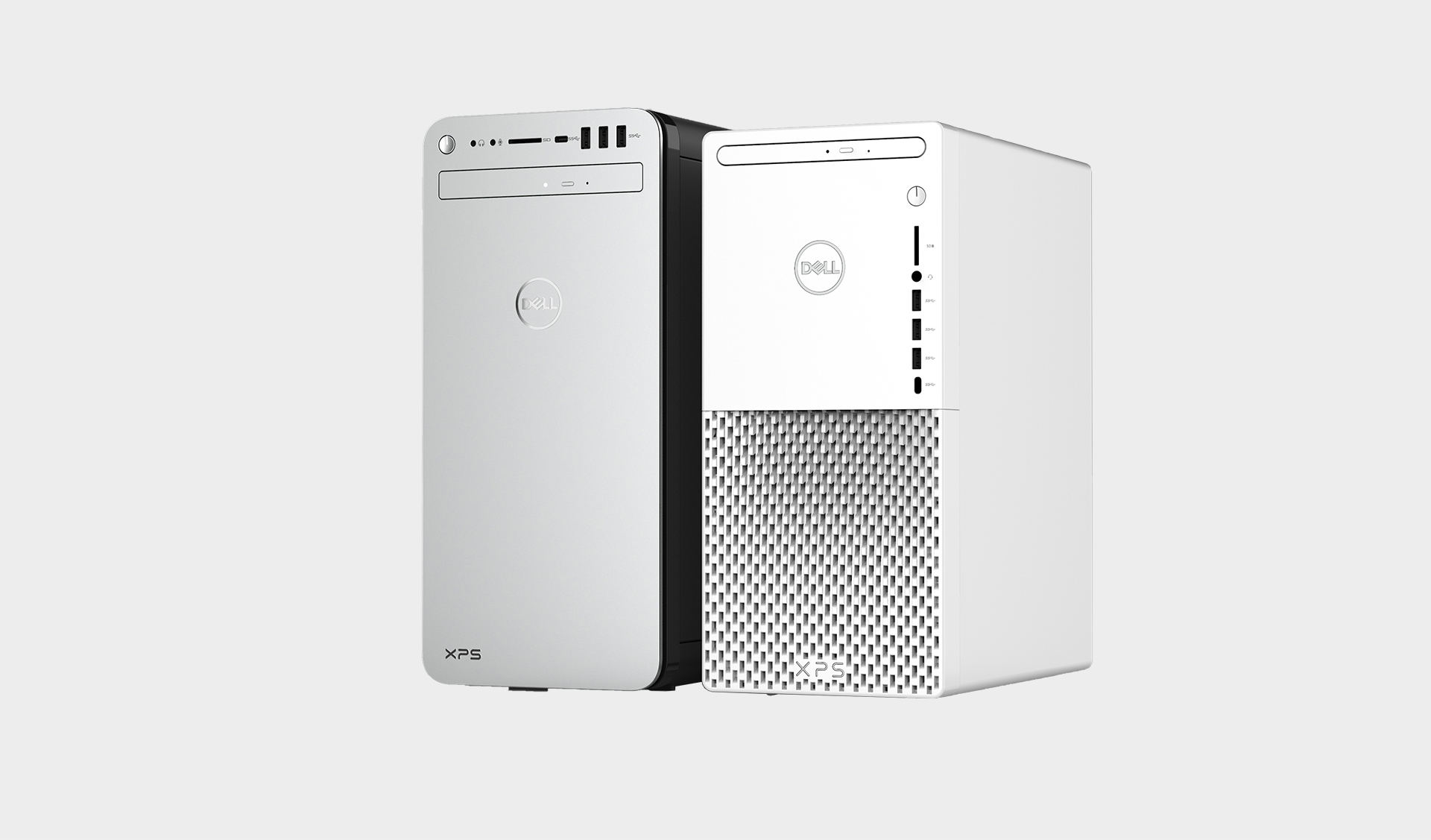
While pretty impressive for its size, this is by no means the beefiest PC around. The 10th Gen Intel Core i7 10700K processor and Nvidia GeForce RTX 2070 Super are great performing parts but not crazy overkill, and the RAM is a little lacking at only 16GB DDR4—at this price you'd perhaps expect 32GB. At least it's dual-channel memory, although be sure to select a twin-stick configuration at checkout (at no extra cost) as some default to only a single stick.
The Dell XPS Desktop scored a respectable 4,877 points in the multi-core test in Cinebench and consistently sat exactly where you’d expect to find it: between gaming PC and high-end gaming PC according to various 3D Mark benchmarking tests.
When it comes to actually using this PC, it’s a dream. The set up was very easy due to the prebuilt nature and while there are some pre-installed programs, it’s fairly limited to what you’d want anyway. The one exception was the McAfee software which I swear I ticked no to during installation and still ended up having to manually uninstall it. I suppose the good news there is that you can.
Cinebench R20: 4877 (multi-core)
Division 2 (Ultra): 91fps (1440p)
Gears Tactics: (Ultra): 123fps (1440p)
3DMark Time Spy: (GPU) 9976, (CPU) 10174
3DMark Time Spy: (GPU) 4637, (CPU) 5052
3DMark Port Royal: 5862
The boot drive is a 1TB SSD, so start up times are lickety split. It’s also large enough that installing a few of your favourite games shouldn’t be too big of a deal. I noticed loading times while playing games like Control and Flight Simulator were much faster than what I was used to on my older machine, which still runs off an older SSD for my most played games and OS and a HDD for everything else. It makes me wish the other 2TB of storage was also solid state, to make this truly a beast capable of housing many games ready to play at their best, but it serves as a good sized media drive nonetheless.
Playing games feels really good because it’s so effortless while still being quite capable in almost all regards. Control is beautiful with the 2070 RTX Super, and the amazing reflections that offers with RTX on, though it prefers to sit at between 60-70fps at highest settings. I didn’t notice any discernible lag or moments where the framerate dropped below acceptable levels, at least.
Swapping over to Overwatch and bumping the graphical settings as high as they could go I tended to maintain around 90fps during games. In most game workloads the XPS Desktop averages around the 60°C mark but it can get higher. As per other tests it never seemed to exceed 80°C. But perhaps most importantly the system is zero-fuss to get up-and-running. It operates at a happy median and the drivers work.
The Dell XPS Desktop does a great job of meeting expectations levelled at it. If you’re doing something so intense that it’s going to be an issue for this set up, you likely already know it. The blend between compact, safe for work looks, and beefy hardware is a really nice compromise. It’s really just the price that has me a little hesitant. For a bit over $3,000 AUD (a touch over $2,000 USD) for the review configuration, and with those new 30-series graphics cards available in pre-built systems, you can certainly go bigger for less.
A simple and smart PC that's fit for both work and games. If only a little too expensive for what is now partially last-gen kit.

Hope’s been writing about games for about a decade, starting out way back when on the Australian Nintendo fan site Vooks.net. Since then, she’s talked far too much about games and tech for publications such as Techlife, Byteside, IGN, and GameSpot. Of course there’s also here at PC Gamer, where she gets to indulge her inner hardware nerd with news and reviews. You can usually find Hope fawning over some art, tech, or likely a wonderful combination of them both and where relevant she’ll share them with you here. When she’s not writing about the amazing creations of others, she’s working on what she hopes will one day be her own. You can find her fictional chill out ambient far future sci-fi radio show/album/listening experience podcast right here. No, she’s not kidding.
